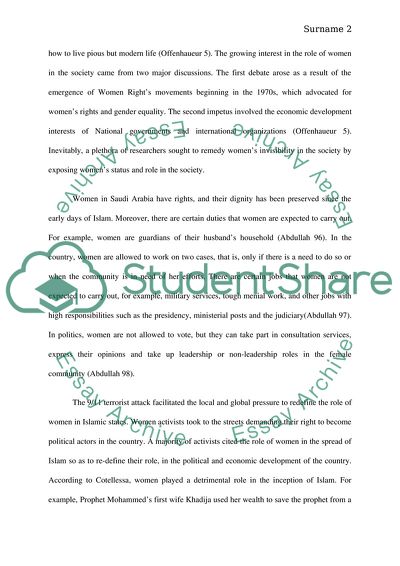Cite this document
(Islamic Women and Politics Coursework Example | Topics and Well Written Essays - 1500 words, n.d.)
Islamic Women and Politics Coursework Example | Topics and Well Written Essays - 1500 words. https://studentshare.org/politics/1878890-gender-in-middle-east
Islamic Women and Politics Coursework Example | Topics and Well Written Essays - 1500 words. https://studentshare.org/politics/1878890-gender-in-middle-east
(Islamic Women and Politics Coursework Example | Topics and Well Written Essays - 1500 Words)
Islamic Women and Politics Coursework Example | Topics and Well Written Essays - 1500 Words. https://studentshare.org/politics/1878890-gender-in-middle-east.
Islamic Women and Politics Coursework Example | Topics and Well Written Essays - 1500 Words. https://studentshare.org/politics/1878890-gender-in-middle-east.
“Islamic Women and Politics Coursework Example | Topics and Well Written Essays - 1500 Words”. https://studentshare.org/politics/1878890-gender-in-middle-east.


